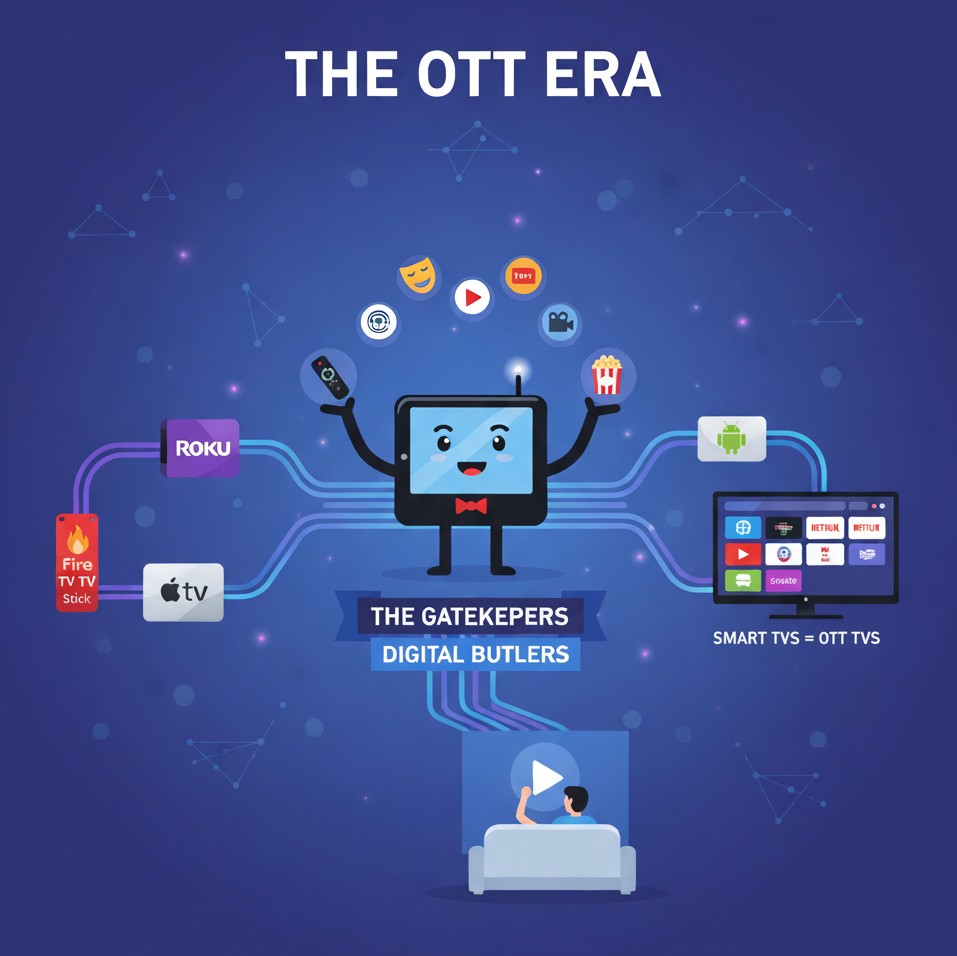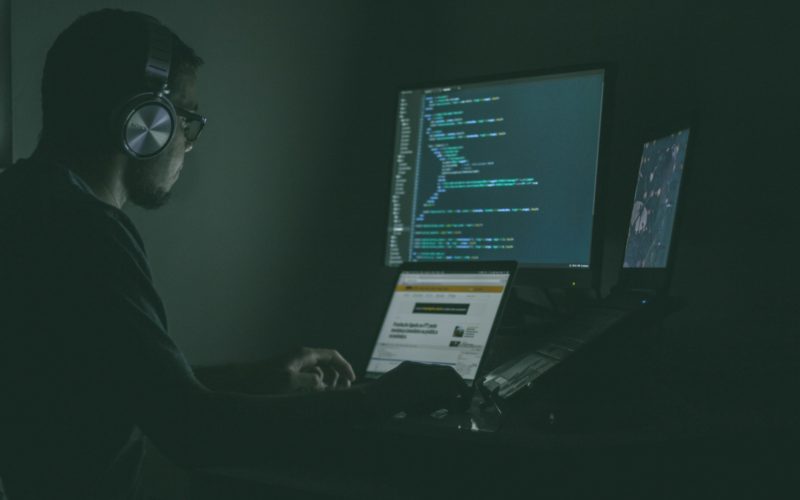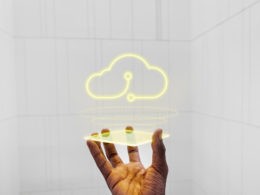In 2025, the global OTT video market is projected to grow at a 5.9% CAGR, reaching $82.5 billion in the US alone, as consumers juggle an average of 4-5 streaming subscriptions per household.
Back in the day, we just… watched shows. Flip on the TV, scroll through a few channels, land on something mildly interesting, and that’s it — entertainment! No subscriptions, no algorithms, no “continue watching?” guilt trips. Now, it’s beautifully chaotic — a binge-worthy maze of choices, platforms, and screentime battles.
This has made entertainment more complicated than ever. Read on to explore why navigating streaming, screens, and screentime feels like a full-time job in today’s world.
How Has Entertainment Become More Complicated?
Here are the major reasons why entertainment in 2025 is a complex ecosystem:
1. The Rise of the Infinite Scroll
Have you ever opened Netflix just to browse? Not to watch, but to scroll — like you’re searching for meaning in a digital void. After 45 minutes, you’re still undecided, stuck between a docuseries about cults and the Korean zombie show your friend swears by. With over 83% of US adults using streaming services in 2025, the infinite scroll isn’t just a feature — it’s a battleground.
Here’s a snapshot of top platforms fueling this overload:
| Platform | Subscribers (2025 Est.) | YoY Growth | Key Feature Driving Scroll |
|---|---|---|---|
| Netflix | 277 million | +8% | Personalized recommendations |
| Disney+ | 153 million | +6% | Marvel/Star Wars universes |
| Amazon Prime Video | 200 million | +10% | Bundled e-commerce perks |
| YouTube | 2.7 billion users | +5% | Shorts and algorithm feeds |
This overload leads to “decision fatigue,” where users spend more time browsing than watching. It’s not just Netflix — it’s Prime, Disney+, Apple TV, YouTube, Twitch, Instagram Reels, and TikTok. Plus, whatever HBO is calling itself this week. We’re drowning in content, and many of us love it!
2. Entertainment Is Not Relaxation Anymore
Once, watching a movie was a relaxing experience. Now it’s a commitment. You have to check Rotten Tomatoes, IMDb, Letterboxd, Reddit threads, and maybe even ask your group chat if it’s “worth it.”
Series are no different. Miss one episode and you’re lost. Blink during a Marvel show, and suddenly there’s a multiverse and you’re 12 movies behind.
Essentially, entertainment has become homework. But it’s like fun homework — or is it?
3. The OTT Era
We’ve entered the age of the ott box — those little devices or apps that beam streaming content straight to your screen. These include Fire TV Stick, Roku, Apple TV, Android boxes, and more. Even smart TVs are basically OTT boxes now.
These OTT boxes are the gatekeepers, the digital butlers serving up whatever show or movie you’re craving — or didn’t know you were craving until it popped up in your recommendations.
They’re convenient, sure. But they also fragment everything. One show is on Hulu, another on Paramount+, and your favorite anime is on Crunchyroll. It’s basically a scavenger hunt for pixels.

4. The Algorithm Is Your DJ Now
Remember when you discovered new stuff from friends? Or from that one cool cousin who always had bootleg DVDs? Now it’s all algorithms — cold, calculating, eerily accurate algorithms.
They know what you like and when you pause. They know when you rewatch that one scene. They know you cried during that dog movie, and now they’re recommending five more dog movies. Creepy, isn’t it?
5. The Death of the “Shared Experience”
Back in the day, everyone watched the same thing. You’d go to school, and everyone was talking about the same episode of Friends or The Simpsons. Now, it’s all about niche communities.
Your friend is deep into Scandinavian noir. Your cousin is watching anime about volleyball. Meanwhile, your coworker is obsessed with Korean dating shows.
And you? You’re rewatching Breaking Bad for the fifth time because nothing else feels right. We’re all watching — but we’re not watching together.
6. The Rise of Passive Watching
Here’s an interesting shift — sometimes we don’t even watch anymore. We just play a show in the background. It serves as comforting noise or a visual backdrop.
Cooking? Play a sitcom. Working? Play lo-fi anime scenes. Sad? Play Studio Ghibli. Happy? Play Studio Ghibli. Entertainment has become an ambiance. And sometimes, it works beautifully.
7. The TikTokification of Everything
Short-form content is eating the world — TikTok, Reels, Shorts, Snaps. Whatever you call them, they’re fast, addictive, and weirdly satisfying. You watch one, then another, then another — suddenly, it’s 2 AM, and you’ve watched 300 videos and learned nothing except that raccoons are smarter than you thought. This isn’t surprising, since TikTok now has over 1.6 billion monthly active users worldwide, and short-form video has become the fastest-growing format in digital entertainment.
Even traditional platforms are adapting. YouTube has Shorts, Netflix is experimenting with bite-sized comedy, and Instagram is basically a TikTok clone now.
Your attention span may be shattered, but at least you’re entertained in the meantime.
8. Nostalgia Is the New Genre
Of course, you’ve noticed this trend. Everything is a reboot, remake, sequel, prequel, or spin-off. Platforms are constantly “reimagining” content.
We’re obsessed with the past. Stranger Things is basically ’80s fanfiction. Cobra Kai brought back The Karate Kid. Even Barbie got a cinematic glow-up. It’s like we’re trying to relive simpler times through pixels, stories, and pure vibes.
9. The Creator Economy Is Booming
Not all entertainment comes from studios anymore. Some of the best stuff is indie, homemade content — raw and real. Podcasts recorded in bedrooms. YouTube channels with zero budget but infinite charm. Twitch streamers playing games and spilling tea. TikTokers doing skits, dances, and weirdly deep monologues.
Now, the line between “creator” and “celebrity” is blurred.
What About the Future of Entertainment?
Honestly? Who knows. Maybe we’ll get AI-generated shows tailored to our moods. Maybe we’ll watch in VR. Maybe we’ll go full Black Mirror and stream content directly into our brains.
Or maybe things will go back to basics — sit down, watch a movie, no distractions, no algorithms. Just vibes.












